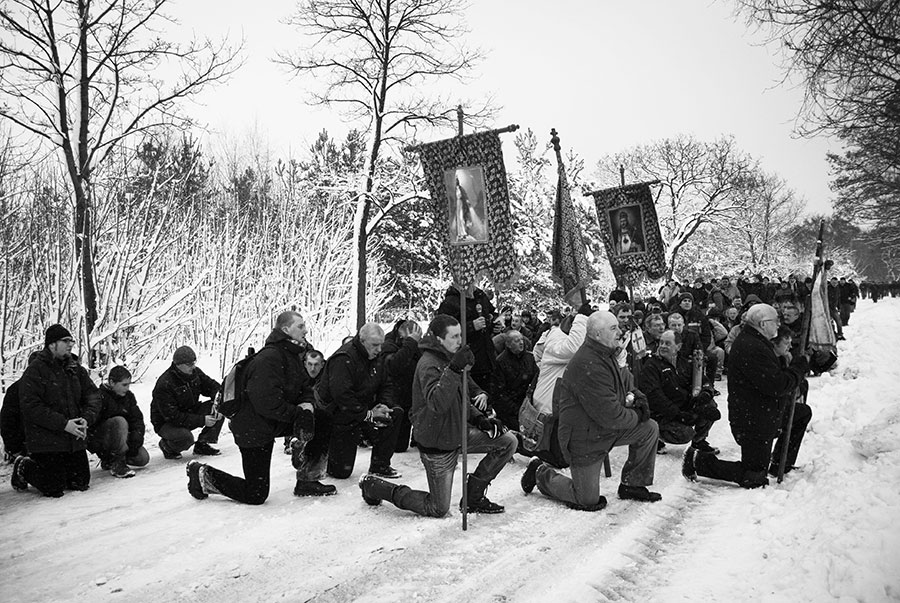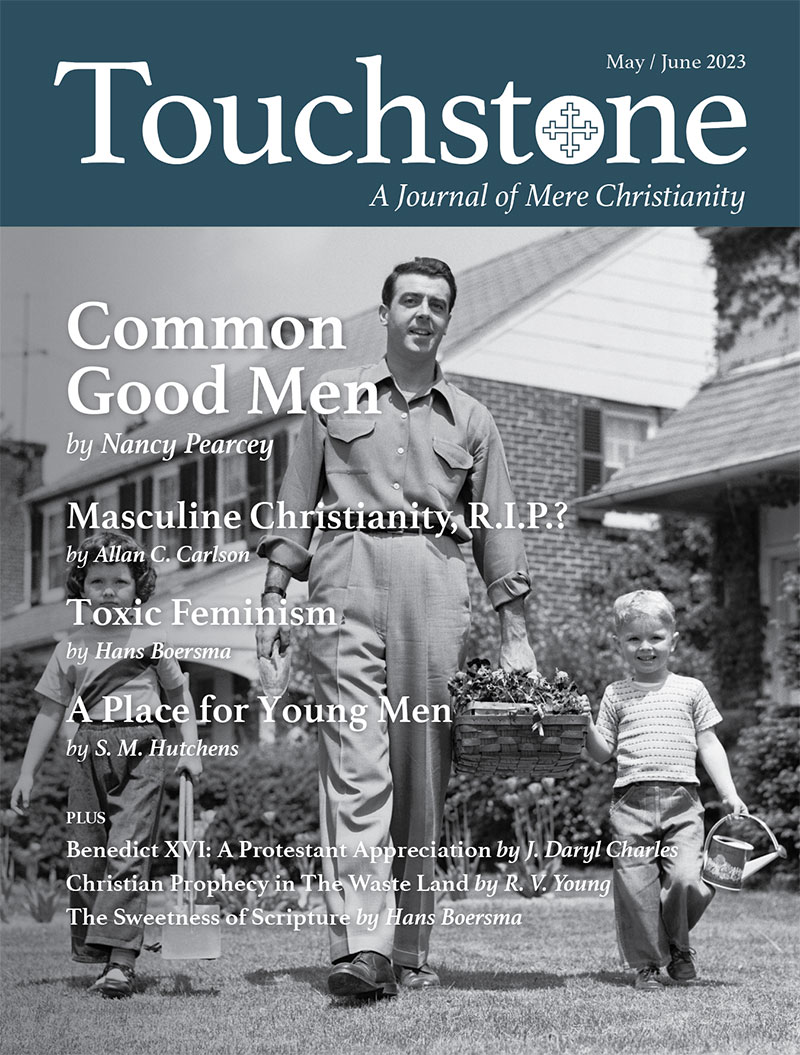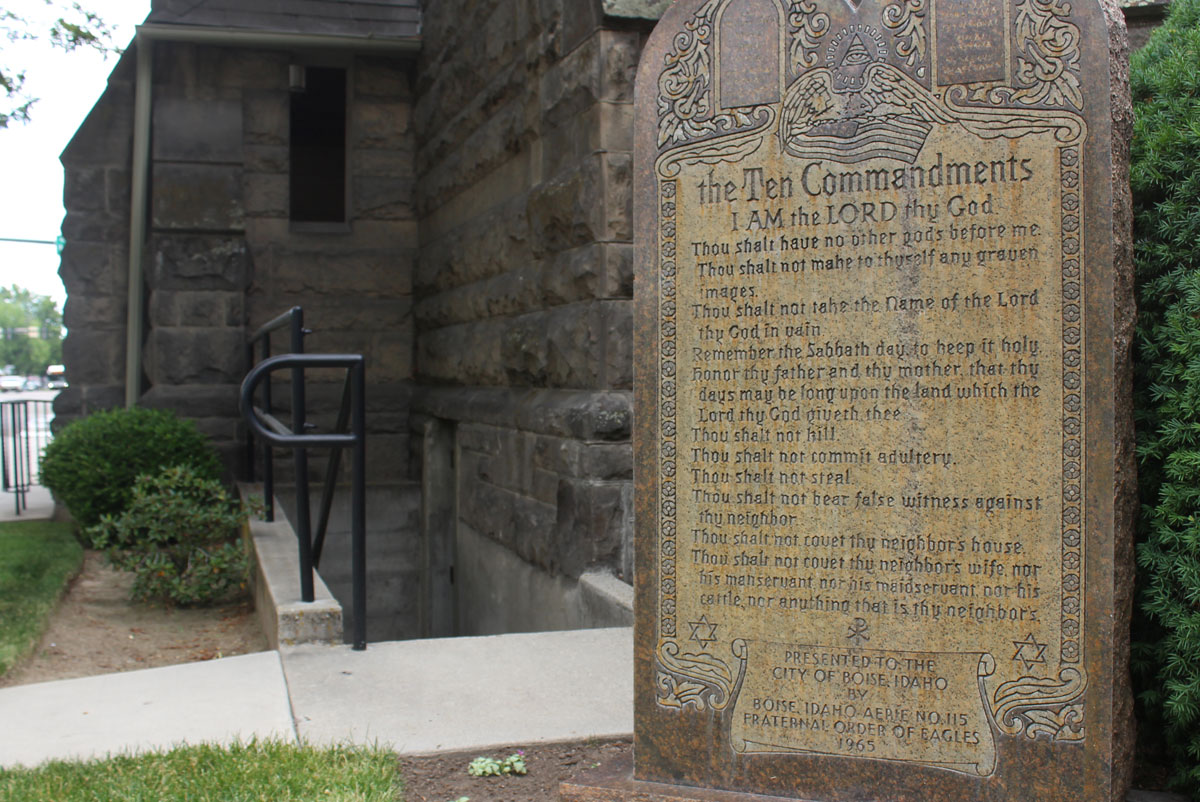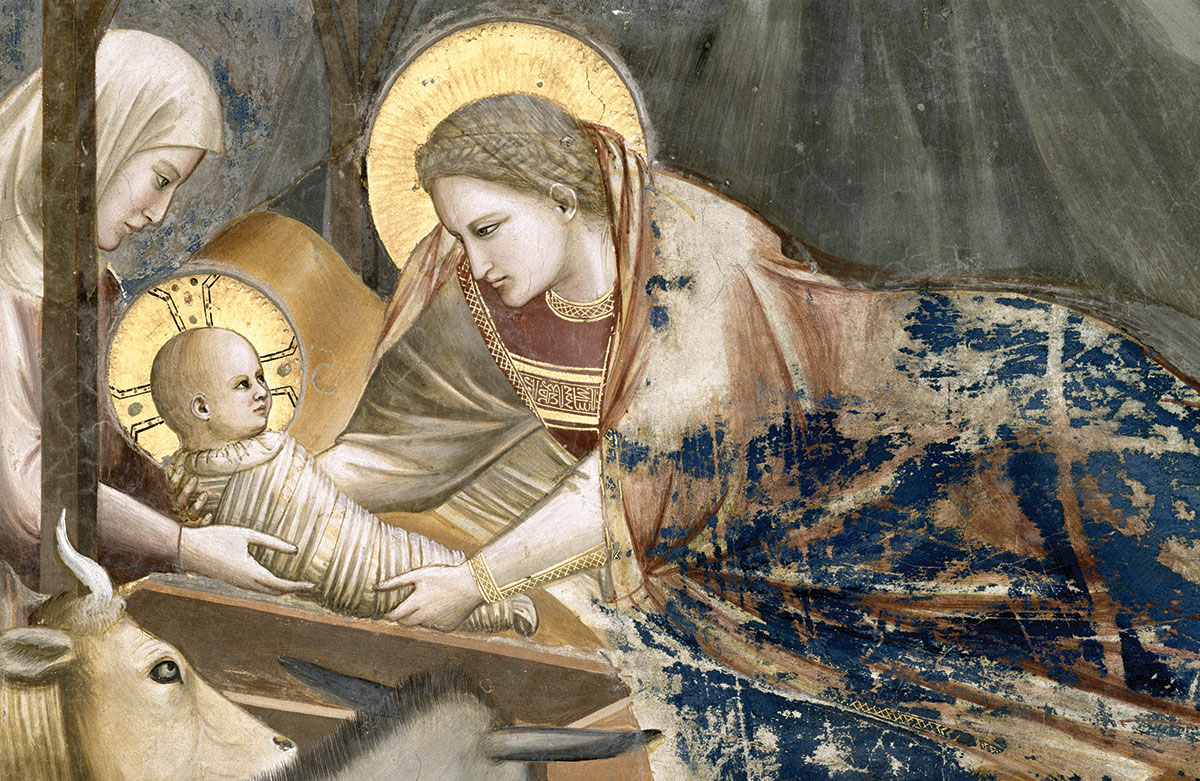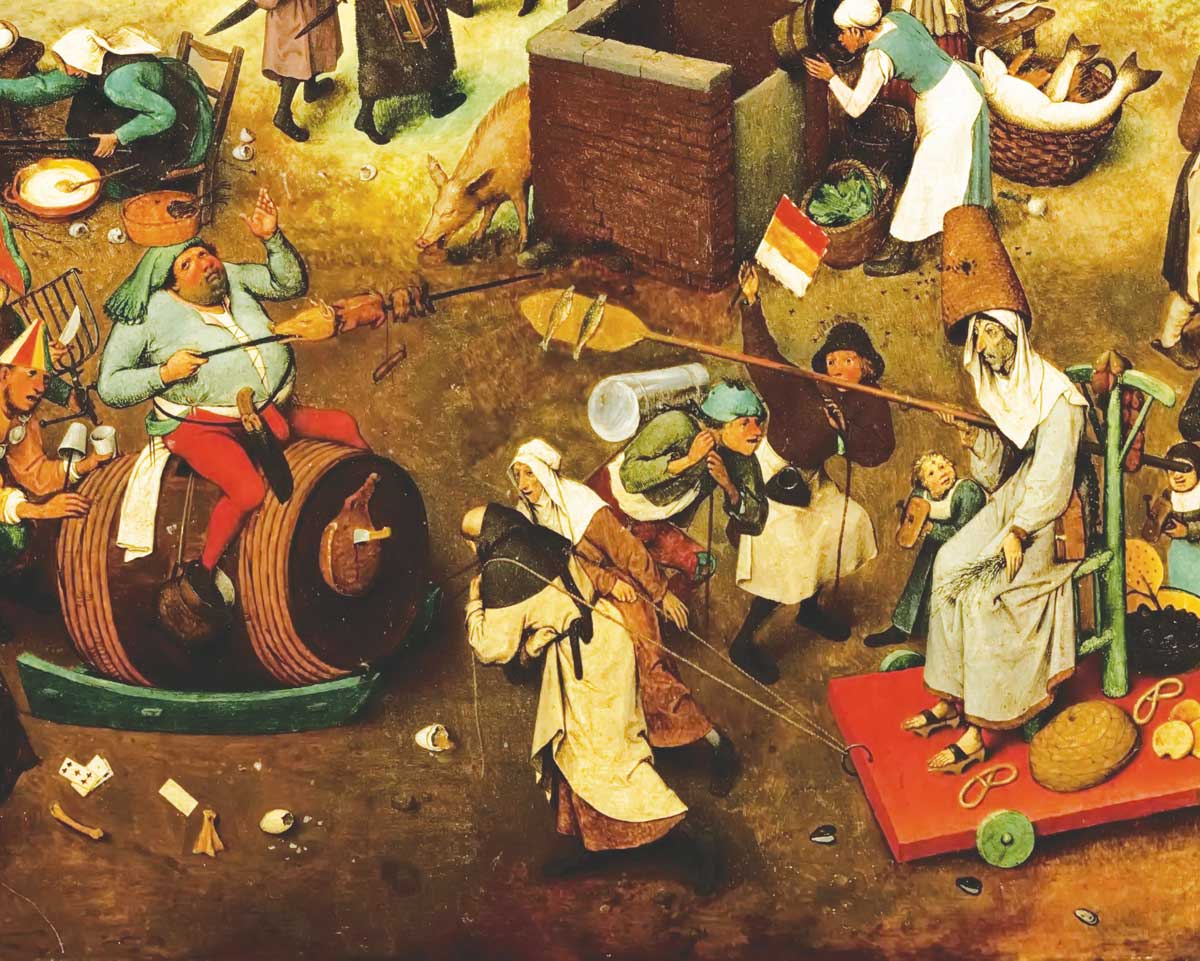Unshaved Masses
Masculine Christianity R.I.P.?
Allan C. Carlson
One of the great churchmen of our time, Cardinal George Pell of Ballarat, Australia, died this January 10 in Rome. He was 81 years of age.
I first met him in 1994, when he was the Roman Catholic auxiliary bishop of Melbourne. I had journeyed “down under” to give several talks for a conference of the Australian Family Association, of which he was ecclesiastical patron. As I had been told, he was a physically imposing man, tall and muscular. In his youth he had excelled at Australian rules football, a game that makes the American version seem tame. Indeed, in 1959 he signed a contract to play professionally for the famed Richmond Football Club. However, he soon left the sport to study for the Catholic priesthood.
His presence brought to mind a description of the spirit found among members of the Catholic Jesuit order in the 1930s. “The model was one of a muscular Christianity and imperturbable masculinity,” wrote historian Peter McDonough in his book Men Astutely Trained. The priest was heir to that wholly male band of Christ’s disciples and was expected to show the same self-sacrificing courage they had shown centuries before.As one novice from the modern era explained, these were young men “grounded in the spirit of St. Ignatius—men of generous heart and powerful physical constitution equipped, themselves, to vanquish Satan and to snatch from the jaws of Hell souls who were made for Heaven and Happiness.”
Pell’s masculine Christianity was rounded off, or completed, by his role as a spiritual father, at both the parish and societal levels. His own talk at the AFA conference celebrated the natural family as the incubator of Christian faith and warned of the dark forces gathering to destroy it. In 2001, he invited me to return to Australia to give the keynote address at the founding of his new project, the John Paul II Institute for Marriage and Family–Melbourne. And he was a formal patron of several controversial World Congress of Families events held in his land. As I would sometimes joke, he had this Protestant’s vote to be the next pope.
The shadowy leaders of Australia’s cultural left, including the influential “gay community” of Sydney, found this form of masculine religious and social leadership to be intolerable; George Pell, they resolved, must be destroyed. In 2002 they floated allegations that Pell had sexually abused a 12-year-old boy four decades earlier, a charge that dissolved in the light of day. In 2017 they tried again, advancing patently absurd allegations of child sexual assault said to have occurred while he was archbishop of Melbourne.
Pell, now prefect of the Vatican’s Secretariat for the Economy in Rome, returned home and stood trial. Mobs of persons, seething in rage, gathered each day outside the courthouse, demanding Pell’s conviction. The first trial ended in a hung jury. A second jury, though, gave in to the mob. Convicted, Pell began to serve a six-year prison term in solitary confinement. However, Australia’s highest court overturned his conviction in April 2020, holding that the jury had betrayed its trust. Nonetheless, the fate of George Pell looms large before would-be champions of a muscular, traditional Catholicism.
The Household of Herr Pastor
Masculine Protestantism has suffered a different, if equally dismal, fate in our time. The model, of course, had been Martin Luther. After rejecting lifelong celibacy for clerics, citing abuses, the German reformers of the sixteenth century embraced a strongly patriarchal family structure. Herr Pastor would preside over a boisterous household, rich in offspring and activity. He would employ the male attributes of foresight, risk-taking, and courage, and serve as protector of the Christian home—his own, first and foremost, but also those under his pastoral care.
The pastor’s wife, inspired by the Proverbs 31 woman, would bear the children, manage the daily business of the household, care for the sick and infirm, and inspire and counsel the women in her husband’s congregation. Famously, Luther’s wife, Katharina, set the pattern as the mother of ten children (six natural and four “adopted”), the “boss of Zuhlsdorf” (their farm), and “the morning star of Wittenberg,” known for her early rising to tend to her many duties. Laymen, as “housefathers,” and their goodwives would follow the pastoral example.
In his remarkably sympathetic book When Fathers Ruled: Family Life in Reformation Europe, Harvard University historian Steven Ozment describes this “as the heyday of the patriarchal nuclear family.” The Lutherans exalted the energized Christian home as bringing “the liberation of men, women, and children from religious, sexual, and vocational bondage.” More broadly, “[a] father not only provided for the present and future needs of his immediate family but also extended his household” throughout the homeland, giving assistance to “church and school, friends and neighbors, the poor and the needy.”
Allan C. Carlson is the author of numerous books, including Family Questions: Reflections on the American Social Crisis and The American Way: Family and Community in the Shaping of the American Identity. He attends St. Paul Lutheran Church in Rockford, Illinois. He is a senior editor of Touchstone.
subscription options
Order
Print/Online Subscription

Get six issues (one year) of Touchstone PLUS full online access including pdf downloads for only $39.95. That's only $3.34 per month!
Order
Online Only
Subscription

Get a one-year full-access subscription to the Touchstone online archives for only $19.95. That's only $1.66 per month!
bulk subscriptions
Order Touchstone subscriptions in bulk and save $10 per sub! Each subscription includes 6 issues of Touchstone plus full online access to touchstonemag.com—including archives, videos, and pdf downloads of recent issues for only $29.95 each! Great for churches or study groups.
Transactions will be processed on a secure server.
more on culture from the online archives
more from the online archives
calling all readers
Please Donate
"There are magazines worth reading but few worth saving . . . Touchstone is just such a magazine."
—Alice von Hildebrand
"Here we do not concede one square millimeter of territory to falsehood, folly, contemporary sentimentality, or fashion. We speak the truth, and let God be our judge. . . . Touchstone is the one committedly Christian conservative journal."
—Anthony Esolen, Touchstone senior editor





